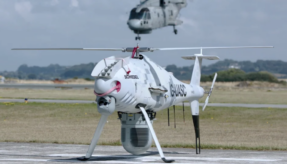
The Defence and Security Accelerator (DASA) will host a webinar for its regenerative medicine at the frontline themed competition.
The webinar will be held on 5 February and take place online from 12:30pm to 1:30pm and provides an opportunity for those unable to attend the main networking event on Thursday 1 February in Bristol.
The competition seeks to make a real difference in saving lives and reducing disabilities following serious injury and is inviting proposals that harness developments in regenerative medicine to offer practical approaches suitable for use, early after injury.
The competition has two technical challenge areas – bioengineered blood and blood components and the preservation and regeneration of soft tissue using biophysical approaches – and for both proposed technologies must take into account the particular aspects of delivering trauma care in challenging environments.
Recent conflicts in Iraq and Afghanistan saw step changes in trauma care that led to great improvements in survival following blast or ballistic trauma. This has meant, however, that people survive with increasingly life-changing injuries.
DASA envisage that the very early use of approaches in regenerative medicine has the potential to further revolutionise front line trauma care to save lives and to improve the quality of life for survivors.
The outputs from this work would be developed for use by the UK’s Defence Medical Services and other organisations who deliver trauma care in challenging environments.
These approaches should also reduce the burden on later care supplied by both MoD and the NHS.
Up to £500,000 is available for phase 1 of this competition, with at least another £500,000 to be made available for phase 2 of the competition. Only those projects funded through phase 1 will qualify for entry into the phase 2 of the competition.
Proposals must be submitted to the Accelerator submission service and received by Wednesday 11 April 2018 at midday.
If you would like to join our community and read more articles like this then please click here.
DASA Defence and Security Accelerator Defence Medical Services MOD NHS webinar







